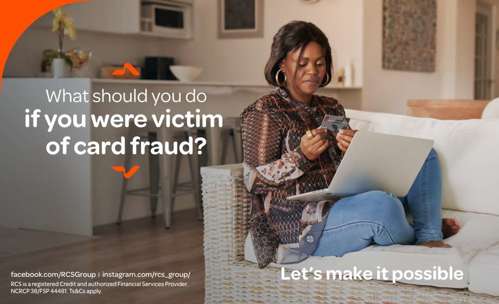What You Should Do If You Were a Victim of Card Fraud
17 AUGUST 2023
Financial fraud is a serious challenge in South Africa. We look at several ways in which you can try to limit the damage they do, or reclaim your money.
Swindlers are everywhere
Every year, scammers in South Africa get away with millions of rands from unsuspecting victims.
We will discuss ways below to give you a good shot at getting your money back, in the event of such an unfortunate occurrence. Obviously, there is no ‘one size fits all’ solution - the circumstances determine how you behave in the aftermath of a fraud. However, your efforts might be the difference between having a shot at recovering your money.
1. Alert your bank
As soon as you suspect that money has left your account without your authorization, contact your bank. Most banks have Apps through which you can block your card while you and your bank investigate.
If you notify your bank early enough, they may be able to prevent more money from being lost due to illicit transactions. Remember, the sooner you notify the bank the higher your chances of recovering your funds.
2. Call the cops
The South African Police Service will open a case. It is completely free to report a crime, and police officers will assist you with the necessary paperwork. Police will examine the case and may well discover that you are not the only victim of this particular puretrator. A police case number is often required by insurance companies.
3. Checked all of your accounts
Examine your bank statements and all of your accounts to ensure that everything is in order. If the stolen sum is a small amount you may find that the month you uncovered the issue is not actually the only month the crime has taken place. Many online scammers target only small amounts at a time to delay your noticing.
4. Speak with a credit bureau
If any of your accounts have been impacted, ask your bank to assist you in contacting a credit bureau to get your credit frozen. This will stop thieves from starting new credit accounts in your name. Experian, TransUnion, Compuscan, and XDS are the four major credit bureaus in South Africa.
Card fraud is typically dealt with in the following ways:
- Your account will be cancelled promptly if a suspected case of fraud is discovered, to prevent additional illicit transactions.
- The incident will be documented, and an investigation file will be created.
- A transaction check on your account will be used to begin an investigation.
- You will be informed of the outcome of your case after the investigation is completed.
How do you protect yourself?
- Be cautious of phishing schemes. These are websites or emails that are attempting to deceive you into providing your credit card information.
- Check your financial statements often. This way, you'll be able to notice any unusual or unlawful transactions fast.
- Consider where you use your credit cards more carefully. Make sure you only use them with reputable websites.
- Set a credit limit that is appropriate for your requirements. If you don't spend a lot of money on a daily basis, you should ask your bank to lower your transaction limit. If hackers ever get their hands on your card, they won't be able to make huge transactions this way.
- Notify your bank of your travel plans (and not merely to avoid your account being frozen). This way, if any suspicious transactions occur in unexpected areas, they may be flagged right away.
If you've had a data breach or your identity has been compromised in any way, the first thing you should do is reset all of your internet passwords. It's possible that your hijacked account is linked to other internet accounts. Let's say your email address got compromised. Your online bank account or social media accounts may be linked to this email address. Even if the fraudster has already gained access to all of these, it is critical to change passwords as soon as possible.
While criminals are always attempting to deceive honest individuals, there are several organisations working to stop them. In general, remember to carefully secure your personal information; if you are careless with personal information such as your PIN, or 3-digit CVC (on the back of your card), you may not be able to get your money back. Here are more tips to protect yourself from financial fraud.



